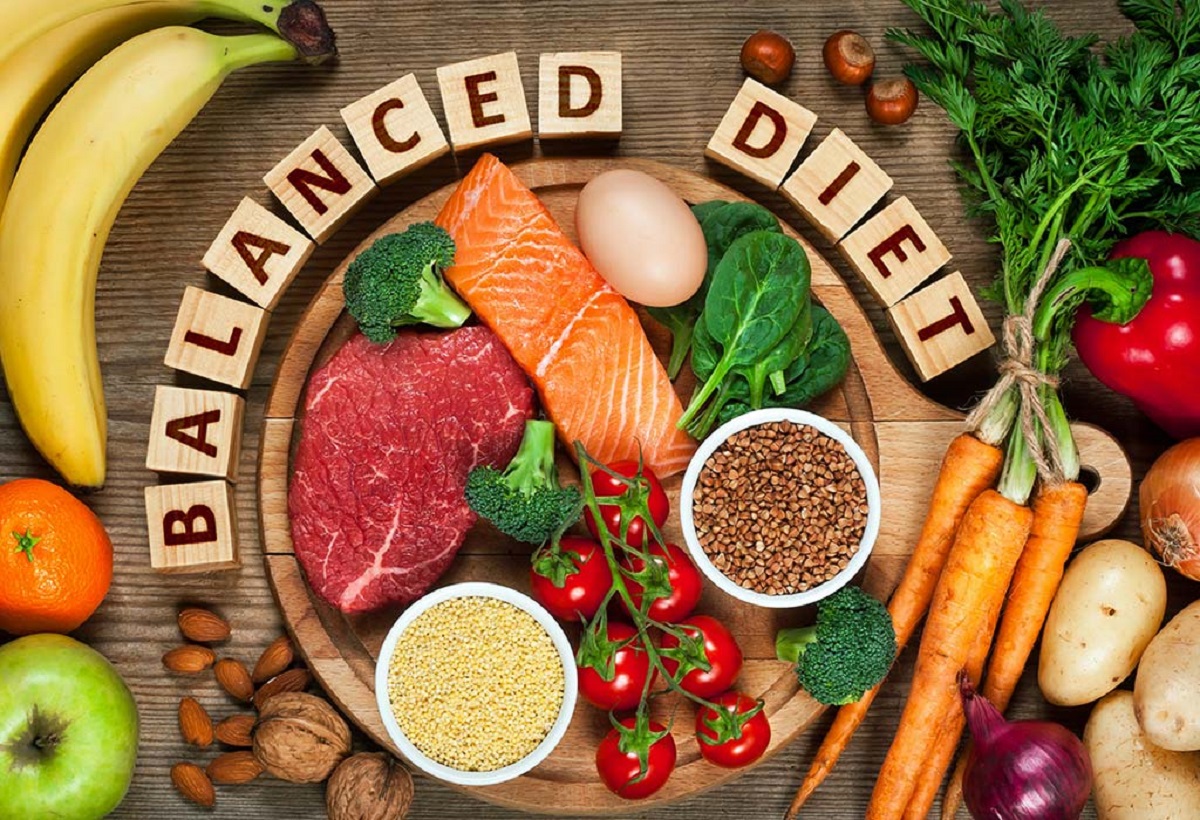Nutritional Guide For Men Over 60: Essential Foods

Nutritional Guide For Men Over 60: As men enter their upper 60s, their nutritional needs evolve to support overall health, manage chronic conditions, and maintain quality of life.
The right diet can play a crucial role in addressing common health concerns such as heart disease, diabetes, and bone health. This guide explores the essential foods that can help men in this age group stay healthy and vibrant.
Nutritional Guide For Men Over 60
1. Importance Of A Balanced Diet

Nutritional Guide For Men Over 60, A balanced diet for older men should include a variety of nutrients to support cardiovascular health, bone density, muscle mass, and cognitive function. Key nutrients include:
Proteins: Essential for muscle maintenance and repair.
Fats: Necessary for heart health and cognitive function, but should be healthy fats.
Carbohydrates: Provide energy and fiber, important for digestive health.
Vitamins and Minerals: Support various bodily functions and prevent deficiencies.
2. Protein-Rich Foods
Nutritional Guide For Men Over 60, As muscle mass tends to decrease with age, adequate protein intake is vital to prevent muscle loss and maintain strength.
Lean Meats: Chicken, turkey, and lean cuts of beef or pork provide high-quality protein.
Fish: Rich in omega-3 fatty acids, fish like salmon, mackerel, and sardines help with heart health and inflammation.
Eggs: A versatile protein source that also provides important nutrients like vitamin D and choline.
Dairy Products: Greek yogurt, milk, and cheese offer protein and calcium, which are essential for bone health.
Plant-Based Proteins: Beans, lentils, chickpeas, and tofu are excellent sources for those who prefer plant-based diets.
3. Healthy Fats
Nutritional Guide For Men Over 60, Incorporating healthy fats into the diet is crucial for cardiovascular health and cognitive function.
Avocados: Packed with monounsaturated fats that support heart health and provide essential nutrients.
Nuts and Seeds: Almonds, walnuts, chia seeds, and flaxseeds offer omega-3 fatty acids and fiber.
Olive Oil: A primary source of monounsaturated fats, beneficial for heart health and inflammation reduction.
4. Whole Grains

Nutritional Guide For Men Over 60, Whole grains are a rich source of fiber, which is essential for digestive health and can help manage blood sugar levels.
Oats: High in soluble fiber, which can help lower cholesterol and support heart health.
Quinoa: A complete protein and a good source of fiber, magnesium, and iron.
Brown Rice: Provides more fiber and nutrients compared to white rice.
5. Fruits And Vegetables
Nutritional Guide For Men Over 60, Fruits and vegetables are vital for providing essential vitamins, minerals, and antioxidants that help combat aging and chronic diseases.
Leafy Greens: Spinach, kale, and collard greens are rich in vitamins A, C, and K, as well as calcium and antioxidants.
Berries: Blueberries, strawberries, and raspberries are high in antioxidants, which help protect against oxidative stress and inflammation.
Cruciferous Vegetables: Broccoli, cauliflower, and Brussels sprouts contain compounds that may help reduce cancer risk and support overall health.
6. Bone Health
Nutritional Guide For Men Over 60, Maintaining bone health is crucial as bone density tends to decrease with age. Foods rich in calcium and vitamin D can help.
Calcium-Rich Foods: Low-fat dairy products, fortified plant-based milks, and leafy greens are good sources.
Vitamin D Sources: Fatty fish, fortified dairy products, and sunlight exposure help maintain adequate vitamin D levels, essential for calcium absorption.
7. Hydration

Nutritional Guide For Men Over 60, Proper hydration is often overlooked but is essential for overall health. Dehydration can lead to various health issues, including kidney problems and cognitive decline.
Water: Aim to drink plenty of water throughout the day.
Herbal Teas: Chamomile, ginger, and peppermint teas can be hydrating and soothing.
8. Foods To Limit Or Avoid
Nutritional Guide For Men Over 60, While focusing on beneficial foods, it’s also important to limit or avoid certain foods that can negatively impact health.
Excessive Sodium: High sodium intake can lead to hypertension and increase the risk of heart disease. Opt for fresh, unprocessed foods and use herbs for seasoning instead of salt.
Added Sugars: Reducing intake of sugary foods and beverages helps manage blood sugar levels and reduce the risk of diabetes.
Saturated and Trans Fats: Found in fried foods, certain margarines, and processed snacks, these fats can contribute to heart disease.
9. Practical Meal Planning Tips
Nutritional Guide For Men Over 60, Incorporating these foods into a daily diet can be achieved through thoughtful meal planning.
Balanced Meals: Aim for meals that include a source of lean protein, whole grains, and a variety of vegetables.
Snacks: Choose healthy snacks like nuts, fruits, or yogurt to keep energy levels stable throughout the day.
Preparation: Cooking at home allows for better control over ingredients and portion sizes. Experiment with herbs and spices to enhance flavor without added salt or sugar.
10. Special Considerations

Nutritional Guide For Men Over 60, Individual health conditions or medications may affect nutritional needs. Consulting with a healthcare provider or a registered dietitian can provide personalized guidance and ensure dietary choices support overall health.
Nutritional Guide For Men Over 60, In summary, a diet rich in protein, healthy fats, whole grains, fruits, and vegetables can greatly benefit men in their upper 60s. Focusing on these nutrient-dense foods while managing portion sizes and limiting unhealthy options can support health, prevent chronic conditions, and enhance overall quality of life.
Also Read:
“The 8 Best Foods To Eat When You Have Diarrhea: A Guide To Recovery”
New Study: Daily Vinegar Intake Can Improve Depression Symptoms




